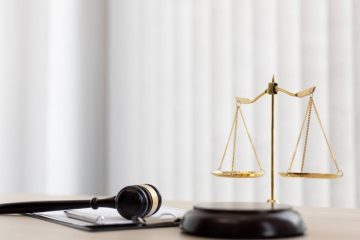Criminal defense lawyers must create a customized legal strategy for their client’s case, such as questioning evidence presented by the prosecution and providing counterevidence or negotiating plea deals.
However, lawyers’ job is not to ascertain guilt or innocence, so why would they defend criminals? The answer to that question can be complex.
1. They are obligated to do so.
Criminal lawyers do not typically get to choose their clients. Public defenders, especially, take anyone who walks through their door who can afford their fees. Most criminal defense lawyers — even when aware that their client is guilty — remain committed to vigorously defending them as good defense relies upon comprehensive knowledge of both case facts and possible strategies for proceeding forward.
As well as their investigative duties, investigators must also prepare for trial and be ready to react quickly to any new developments that arise. That means they often spend much of their time reviewing documents, researching evidence against their clients, discussing strengths and weaknesses of the case with them as well as discussing any necessary adjustments or modifications with clients.
Alongside counseling their clients on what to expect during court hearings, attorneys also help clients complete any required paperwork correctly and expeditiously. Any miscalculation could jeopardise their case, so it is the responsibility of an attorney to keep this process running efficiently and smoothly.
People often assume that criminal attorneys spend most of their time arguing before judges and juries, but that’s only part of their job. Much more of it involves reviewing all available evidence, identifying any weaknesses in prosecution’s case and offering alternative explanations as to what occurred.
Their role also requires reviewing witness testimony, reviewing police reports and evidence, and negotiating with prosecutors on behalf of their clients – from trying to get charges dropped down to negotiating plea deals with prosecutors. Sometimes these lawyers must also advise clients what to say when being interrogated by police officers to prevent making statements which might incriminate themselves further.
Though wrongful convictions may be regrettable, they are unfortunately an inevitable part of life. Lawyers defending those accused of even the most serious offenses play an essential role in protecting our legal system by closely scrutinizing evidence, challenging unsubstantiated claims, and uncovering any inconsistencies or errors within their client’s case against them.
2. They have a duty to uphold the law.
Criminal defense attorneys must uphold the law regardless of how unjustified it may seem; that means defending people they know are guilty even when doing so violates their own moral convictions and defending those they think may be innocent even if doing so does not make legal sense.
Be mindful that just because a lawyer defends someone accused of murder or child molesting doesn’t imply they believe they are guilty; their job is simply to challenge the prosecution’s case and expose any inconsistencies or holes that exist in it, giving their client every chance of having a fair trial while protecting them from being wrongfully convicted.
Criminal defense lawyers must find ways to balance personal morality with professional duties when representing those charged with serious offenses. High-profile cases where seemingly villainous defendants are successfully defended often engender public distrust for those representing them; many believe they knew their client was guilty yet still vigorously defended them despite that knowledge.
Even though some cases can be extremely challenging for defense attorneys to handle, they must remain true to the principles of justice by guaranteeing all people a fair trial regardless of how serious their charges might be.
Defense attorneys must ensure that the jury selection process is fair and impartial; it is their job to make sure no jury member holds an antipathy toward their client and negatively influence the case outcome. This aspect of legal procedure can have an immense impact on its success or failure.
Defense attorneys must also ensure that prosecution does not engage in any illegal behavior that could affect the outcome and credibility of witnesses in court proceedings. For example, if they choose jurors more likely to convict their client than not convict him/her then this can undermine an entire trial; defense attorneys’ job is to help clients understand this risk while working to rectify any problems during trials.
3. They have a duty to protect their clients.
People charged with crimes often feel overwhelmed and don’t know where to turn for assistance, whether that means fines or jail time. A criminal defense attorney can help individuals understand the charges against them and begin building their defense while also explaining their rights such as fair trials and remaining silent.
Lawyers frequently defend their clients due to an ethical obligation. Lawyers understand that laws may not always be applied properly, leading to some unfortunate convictions in the past; as a result, lawyers play an essential role in upholding the integrity of our legal system by carefully scrutinizing evidence presented against their client and uncovering any flaws in prosecution’s case against them.
In addition, the United States Constitution grants defendants certain fundamental rights under which to defend themselves in court proceedings, such as accessing fair and speedy trials and enjoying presumption of innocence. Furthermore, legal counsel plays an integral part of defending clients even when their client may be guilty; their duty should always be to safeguard their clients’ best interests even when their client may have committed offenses themselves.
Of course, most criminal defense lawyers do not actually know whether their clients are guilty or innocent; this is due to attorney-client privilege which prohibits divulging confidential information about them that could expose their guilt or innocence – something which would violate attorney-client privilege and could lead to discipline or even disbarment from practice for the attorney involved.
Find a Criminal Defense Lawyer You Trust It is essential that you find a criminal defense lawyer whom you can entrust, someone who takes time to understand your story before creating the best strategy possible for your case – this way, your chances of securing results like reduced sentence or exoneration increase significantly. Furthermore, ensure your chosen lawyer can answer all your queries or address concerns quickly and professionally.
4. They have a duty to protect the public.
People often struggle to understand why criminal defense attorneys represent those accused of committing serious offenses when they themselves know that such persons should not be defended. Such situations highlight that lawyers have an ethical responsibility to uphold the law and do what’s best for their clients irrespective of how they may feel about their client or situation.
Keep in mind that, in our society, all citizens have the right to vigorous defense in court when facing criminal charges. Prosecutors bear the burden of showing that an accused committed the offense with intent or recklessness; criminal defense attorneys ensure these rights are upheld by courts and that everyone receives a fair trial process.
Criminal defense attorneys are often known as crusaders for the innocent. They’re willing to stand up against powerful lobbyists and fight for what they believe in, often being first to identify system loopholes that allow for unwarranted convictions and injustices to be rectified.
Criminal defense attorneys also play an essential role in helping their clients avoid trial by invoking the Fifth Amendment and Miranda Rights to ensure that no questioning occurs without representation present, while providing advice as to what statements and actions may incriminate themselves during court proceedings – making hiring experienced criminal attorneys all the more important.
Though the moral implications of defending individuals who have committed heinous crimes may be complicated, our legal system depends on strong defense strategies to safeguard both society and those accused. That is one reason why Americans of all ages, races, socioeconomic statuses still have faith in our system despite its occasional failures; to maintain it is by guaranteeing all defendants receive a full and fair trial regardless of how serious their offenses have been committed.


